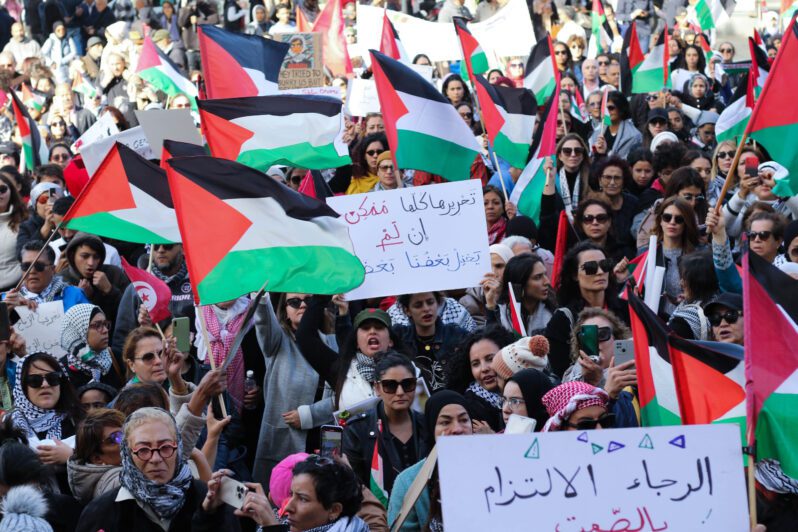Main Arab Legal Events: The Legal Agenda’s Perspective Weekly Note no 26 (February 25- March 4, 2013)

Qursaya Island’s Case, Who is the Military Court Exactly Trying?
Tunisian President of the Republic Heard as a Witness before the Court: A Phenomenon to be dwelled on
In a Special Unprecedented Event: the Lebanese Minister of Justice Expresses Reservations over Judicial Appointments going against Objective Standards
Courts take a Rare Step of Participating in the Public Workers’ Strike
A Demonstration in Algeria before the Supreme Judicial Council calling for the Referral of a Detained Blogger to Court
1- Lebanon:
-The Justice Minister Chakib Kortbawi declared having resubmitted the judicial appointments’ draft law to the Supreme Judicial Council, with his numerous detailed observations where he concluded that the draft is not a step towards the legal reform he has been working on ever since he took office. It is worth signaling that it is a first for a Justice Minister to disclose to the public opinion the reasons behind his rejection of such a draft law, based on the “Judges’, lawyers’ and citizens’ right to know” (as listed in the statement). Courts have also suspended their work after bailiffs joined the public workers’ strike, in a rare step that goes against article 15 of the Labor Law.
2- Egypt:
-The military court delivered its verdict in the “Qursaya” case, where 25 civilians of the island were accused of attacking and inciting violence against armed forces members and properties. It should be noted that the Qursaya case is the second trial of civilians before a military court after the adoption of the new constitution. A member of the “No Military Trials for Civilians” group had declared that the issued verdict is “a small victory” acquitting 14 of them, at a time where other people condemned to 3 months in prison will be released after having been held in precautionary detention.
3- Tunisia:
-In an unprecedented legal event, the examining judge in the Tunisian First Instance Court heard the President of the Republic Mohammad Al-Mounsef Al-Marzouki for about an hour as a witness in the case of the assassination of the General Secretary of the Democratic Patriots’ Movement, Chokri Belaid. On another note, the Syndicate of Tunisian Magistrates denounced the way the media tackled judicial issues, specifically Belaid case. According to the Syndicate, the media is questioning the Judiciary’s integrity and violating the confidentiality of investigations. It therefore called for immunizing the Judiciary to protect the revolution.
Beyond the Weekly Note:
-Qatar:
-The Court of Appeal reduced the life sentence handed down to Qatari poet “Mohamed Ben Al-Deeb Al-Ajami” to 15 years imprisonment in presence of rights activists and representatives of Human Rights Watch. Al-Ajami faced charges of “inciting the overthrow of the ruling regime”.
-Bahrain:
-A series of verdicts have been rendered in the case of Bahraini human rights activist “Zeinab Al-Khawaja” found guilty of entering the prohibited area of the Pearl roundabout site, taking part in an unauthorized demonstration, damaging public property of the Interior Ministry and insulting a functionary on duty. In another related development, the Juvenile Court handed over two 11 years old minors to their parents after having arrested them for 5 days on charges of illegal assembly and tires burning.
-Algeria:
-Citizens and rights activists held a demonstration before the Supreme Judicial Council in Algeria, as a sign of protest against the non-referral of blogger “Saber Saidi” to court even though 7 months had passed since his detention on charges of calls for “forced regime change”.
Prepared by Christelle El-Feghaly



